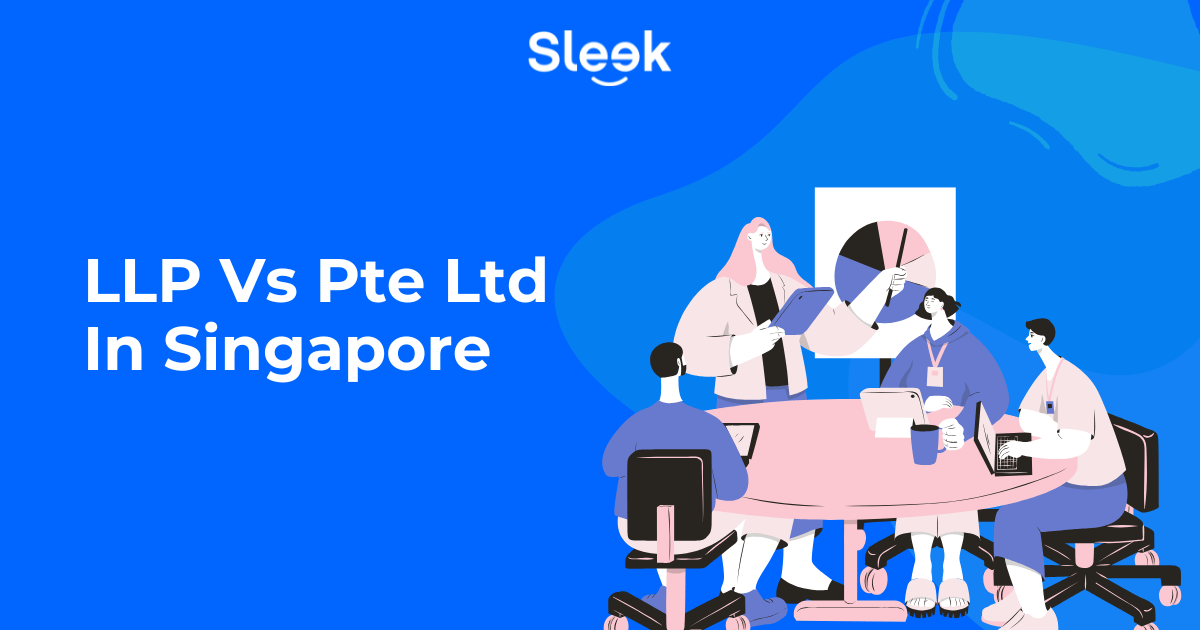What is a Special Purpose Vehicle in Singapore?
3 minute read
A Special Purpose Vehicle, or SPV, is a separate legal entity typically in the form of a private limited company in Singapore created for a specific, narrow purpose – usually for investment. This article gives an introduction to SPVs, how they are typically used, and how to create one in Singapore.
Overview:
- SPVs in Singapore
- A new way of equity financing
- Benefits of using a SPV (from the startup side)
- Benefits of using SPV (from the investor side)
- How do you create a Special Purpose Vehicle (SPV)?
- Who should set up an SPV?
- What are the accounting and tax requirements for an SPV?
SPVs in Singapore
In the past, SPVs were typically used only by financial institutions and those in the real estate market. The concept allowed a parent company to make highly leveraged or speculative investments via their Special Purpose Vehicles without endangering the entire company.
However, lately it has gained popularity amongst startups and VCs at the funding stage. So how can startups benefit from it?
A new way of equity financing
An increasingly popular method when it comes to financing is to use an SPV to help investors invest funds and receive equity when investing in the startup ecosystem.
With it, investors band together as a syndicate to put a sum of money into an investment vehicle that then invests in an entity which collects the pool of investors under one capitalization.
Benefits of using a SPV (from the startup side)
As the company is on the receiving end of a Special Purpose Vehicle investment, having it as an investment vehicle means that the company technically only needs to deal with one investor (i.e., the SPV company). This can prevent unnecessary influence from investors on a day-to-day basis.
Moreover, startups can attract a higher number of sponsors who are maybe more risk-averse, as the sum needed is much lower compared to typical funding sessions.
Benefits of using a SPV (from the investor side)
Below are listed the benefits that the investor enjoys from an SPV.
Risk sharing
Creating an SPV allows companies or individuals to legally isolate the risks of an investment, and then share this risk with other investors. Many angel investors may also feel more comfortable with an SPV that is headed by a manager with experience in the field.
Asset transfer
Certain types of assets can be hard and tedious to transfer. By creating an SPV that owns an entity’s assets, transferring assets can be done by selling it as a whole.
Property sale
If the taxes on property sales are higher than that of the capital gain, a firm may create an SPV that will own the properties for sale. It will allow them to sell the investment vehicle in their ownership instead of the properties and pay tax on the capital gain instead of the property sales tax.
How do you create a Special Purpose Vehicle (SPV)?
Legally, it can be limited partnerships, limited liability companies, trusts, or corporations. There are no special requirements to create an SPV in Singapore that differentiate it from incorporating any other company as it’s merely a vehicle. In the end, it all comes down to the intent of the shareholders about how they wish to use it.
Steps for creating
Take a look at the breakdown of the whole set up process:
Developing the right business structure
Understand the purposes of creating the SPV. This determines the necessary business structure.
SPV incorporation
Once the structure has been sorted out, proceed to incorporate your SPV. This is one of the more important steps that need to be considered.
An SPV in Singapore is usually structured as a Private Limited Company. This is the entity where shareholders’ liabilities are limited by the cost of shares.
Creating a company constitution
The company constitution is a document that defines the regulations for a company’s operations and contains information regarding its purpose. This document should also include the business structure of the SPV involved, its functions, and specific objects.
The objects are determined in a discussion with stakeholders and are linked to the strategy agreed upon for the transaction.
This is a good example of fundamental requirements that have to be covered when it comes to incorporating a company. There are no extra regulatory stipulations that have to be met when setting up an SPV.
Who should set up an SPV?
A Special Purpose Vehicle (SPV) is suitable in many situations.
For example, Special Purpose Entities was used in the investment fund industry. However, in recent years, this structure has become extremely popular in Singapore for startup ventures too.
This is simply due to the fact that startups need funding that can be obtained more easily and securely through an SPV.
Using a Singapore SPV when starting a business can bring benefits such as:
- An SPV provides the platform used by investors to put money into and receive equity from companies.
- Investors can create syndicates through which a considerable amount of money can be collected and invested in a startup.
- Using the identical Special Purpose Vehicle, the parent company will only need to deal with one company instead of numerous investors.
- Startups can attract more investors willing to invest money into a project through Special Purpose Vehicles.
What are the accounting and tax requirements for an SPV?
Under Section 201(3A) of the Singapore Company Act, directors of a corporation holding assets, investments, or subsidiaries, have the obligation to present two additional reports above the basic tax compliance at the end of the financial year at the company’s Annual General Meeting:
- Consolidated Accounts of the company and its investments
- Balance Sheet dealing with the state of affairs of the holding company
All financial statements and balance sheets must comply with the prescribed Accounting Standards (IFRS 10) and give a true and fair view of the financial status of the company.
If an SPV is incorporated as a company, it is taxed at the corporate tax rate of 17% on its chargeable income, subject to the tax incentives available for qualifying companies.
SPVs are subject to the standard annual filing requirements as applicable to Singapore private limited companies (PLCs).
For more information, refer to our resource on Holding Company Considerations & Requirements.
Next move
With proper management and financing, SPVs can be a useful method to raise funds and mitigate financial risks. We offer advice and help with incorporating an SPV in Singapore. Contact us and we will be more than happy to chat.
You might be interested in reading about:









